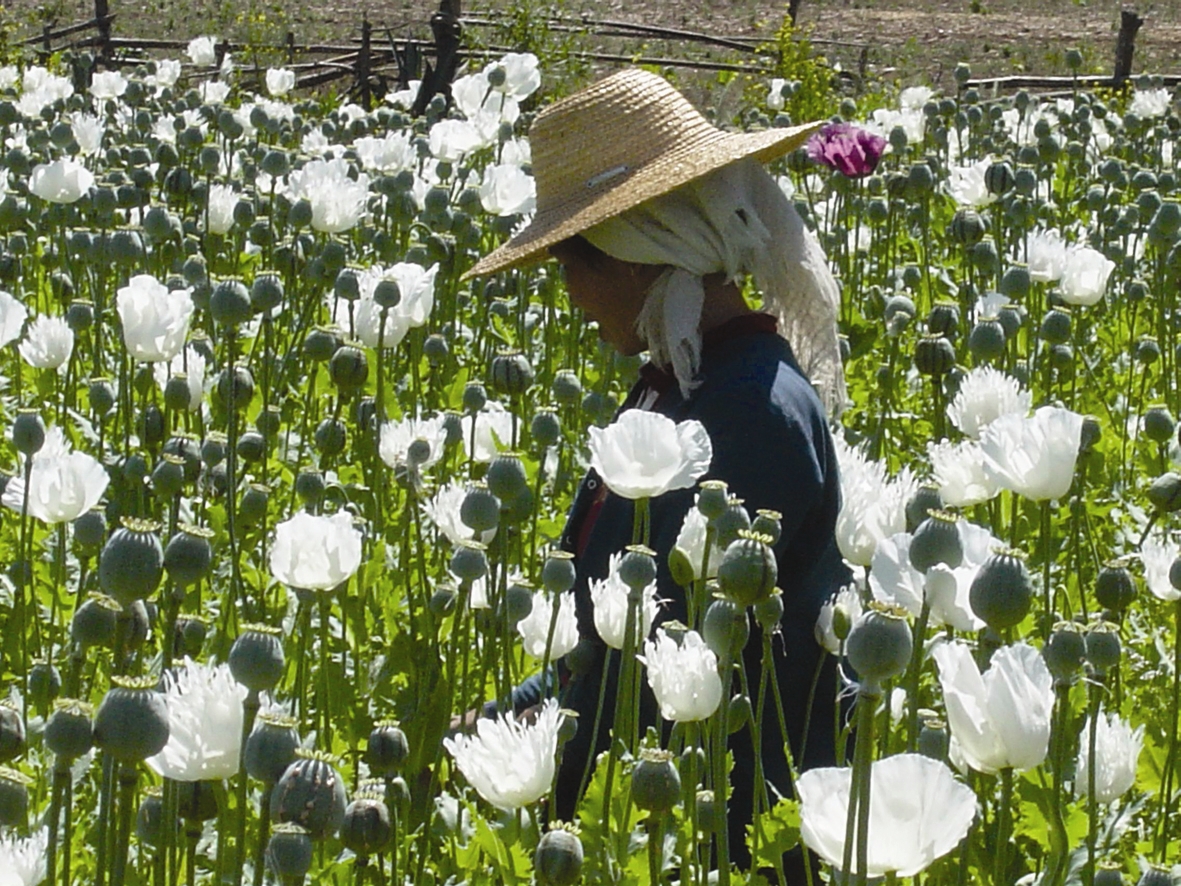In the past few years there has been a dramatic fall in the area under poppy cultivation and opium production, but these gains have been reversed over the past two years, the UN Office on Drugs and Crimes (UNODC) annual survey released on 2 February, said.
"The problem of poppy production in the region has been contained but not solved," UNODC chief in Bangkok Gary Lewis told IRIN.
"There have been significant increases, especially in Myanmar, which are threatening to rise further because of the worsening economic conditions faced by former poppy farmers," he warned.
Significant strides have been made in Laos and Myanmar over the past two decades to dramatically reduce the cultivation of poppy and the production of opium.
In Laos the area under cultivation has been reduced to close to nothing from more than 30,000 hectares in 1998. While it has remained very low since 2005, it has begun to creep up again in the past two years ago.
Poppy cultivation has fallen by more than three-quarters in Myanmar since 1998, while opium production has fallen from more than 1,300 metric tonnes to 410 during this period.
|
Photo: UNODC Laos Opium Survey  |
| Significant strides have been made in Laos over the past two decades to dramatically reduce the cultivation of poppy |
This reduction has been largely the result of pressure on two of the largest opium producers in Myanmar's Golden Triangle (bordering China, Laos and Thailand) - the Kokang and the Wa.
Both are rebel ethnic groups, with large guerrilla forces, who have ceasefire agreements with the Myanmar government.
The Kokang virtually ceased opium production in 2003 and the Wa in 2005. But in the past two years both poppy cultivation and opium production have begun to grow again.
"The trend is certainly upwards with a significant increase in the land under cultivation in Myanmar," said Leik Boonwaat, UNODC chief in Laos, who has also been stationed in Myanmar.
"Former opium farmers who already live in dire poverty are facing twin levers of increasing opium prices and falling commodity prices that may encourage them to resume poppy growing," he said.
The prices of most commodities grown or produced in Shan Sate in Myanmar, and in Laos, as alternatives to poppy - including maize and rubber - have fallen by more than 50 percent, according to the UN's annual drug report.
Most of the Wa and Kokang alternative crops - tea, rubber and fruit - are sold to traders across the border in China where demand for these products has all but dried up.
Soaring opium prices
"The price of opium has more than doubled in the past few years in Myanmar and Laos, making it hard for former opium growers to ignore this incentive to return to poppy cultivation," Boonwaat told IRIN.
With declining prices for their substitute crops and soaring market prices for opium, thousands of former poppy growers are at risk of returning to their traditional crop to produce the extra cash they need.
Because of this, the UN believes there is an even greater need now to step up action against the drug smugglers.
"Already there are important measures in place for the cooperation and exchange of intelligence between drug enforcement agencies in the region - through the border liaison offices that were established several years ago," UNODC's Lewis said.
"But there is no room for complacency. Much more needs to be done," he said.
In particular, greater efforts need to be made to combat the laundering of the proceeds of illegal activities and the illicit drugs trade. Not all countries in the region have put anti-money laundering legislation in place. But law enforcement agencies, judges and lawyers all need to be trained.
In this regard Asia has a long way to go, Lewis said.
lh/ds/cb
This article was produced by IRIN News while it was part of the United Nations Office for the Coordination of Humanitarian Affairs. Please send queries on copyright or liability to the UN. For more information: https://shop.un.org/rights-permissions




